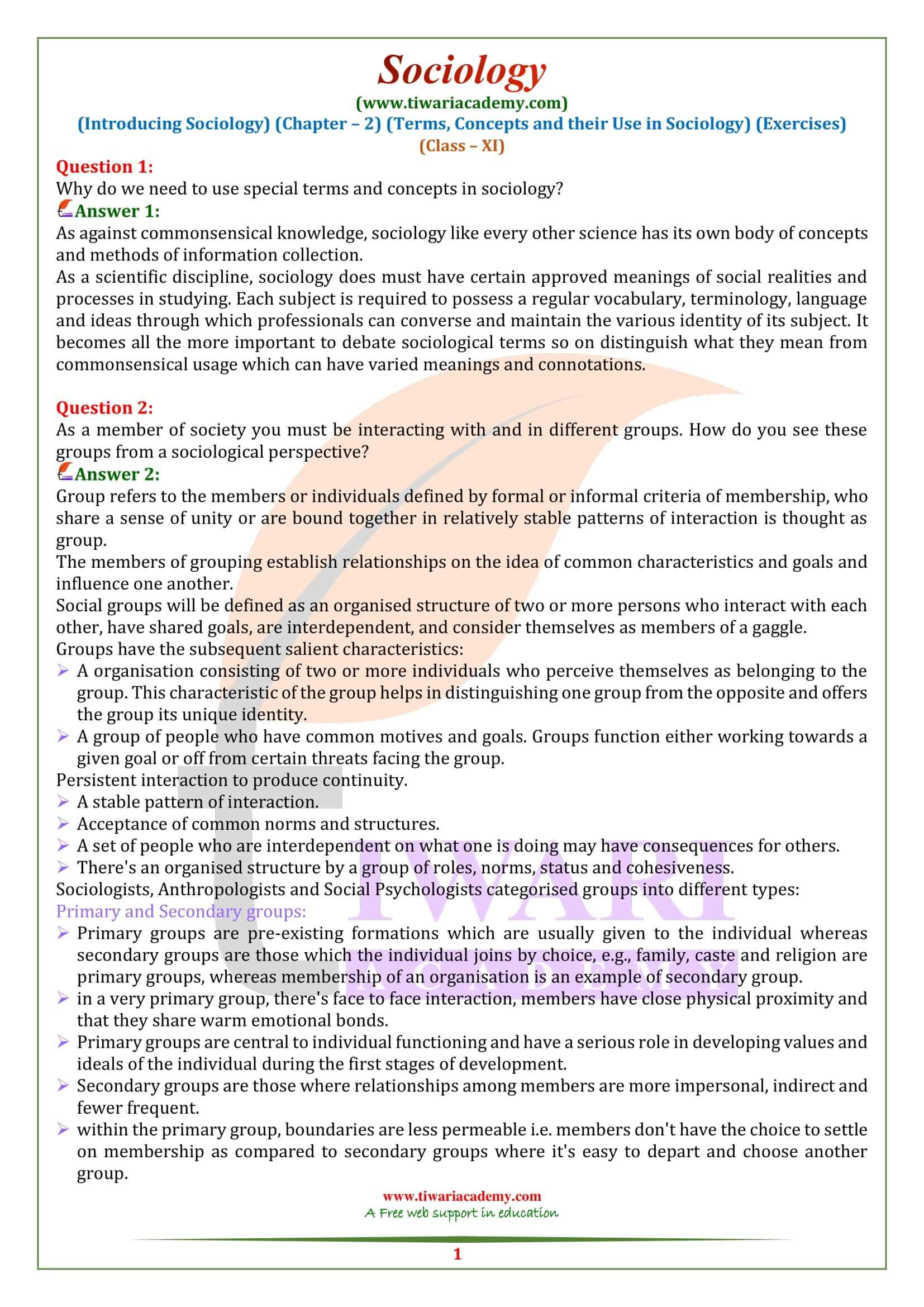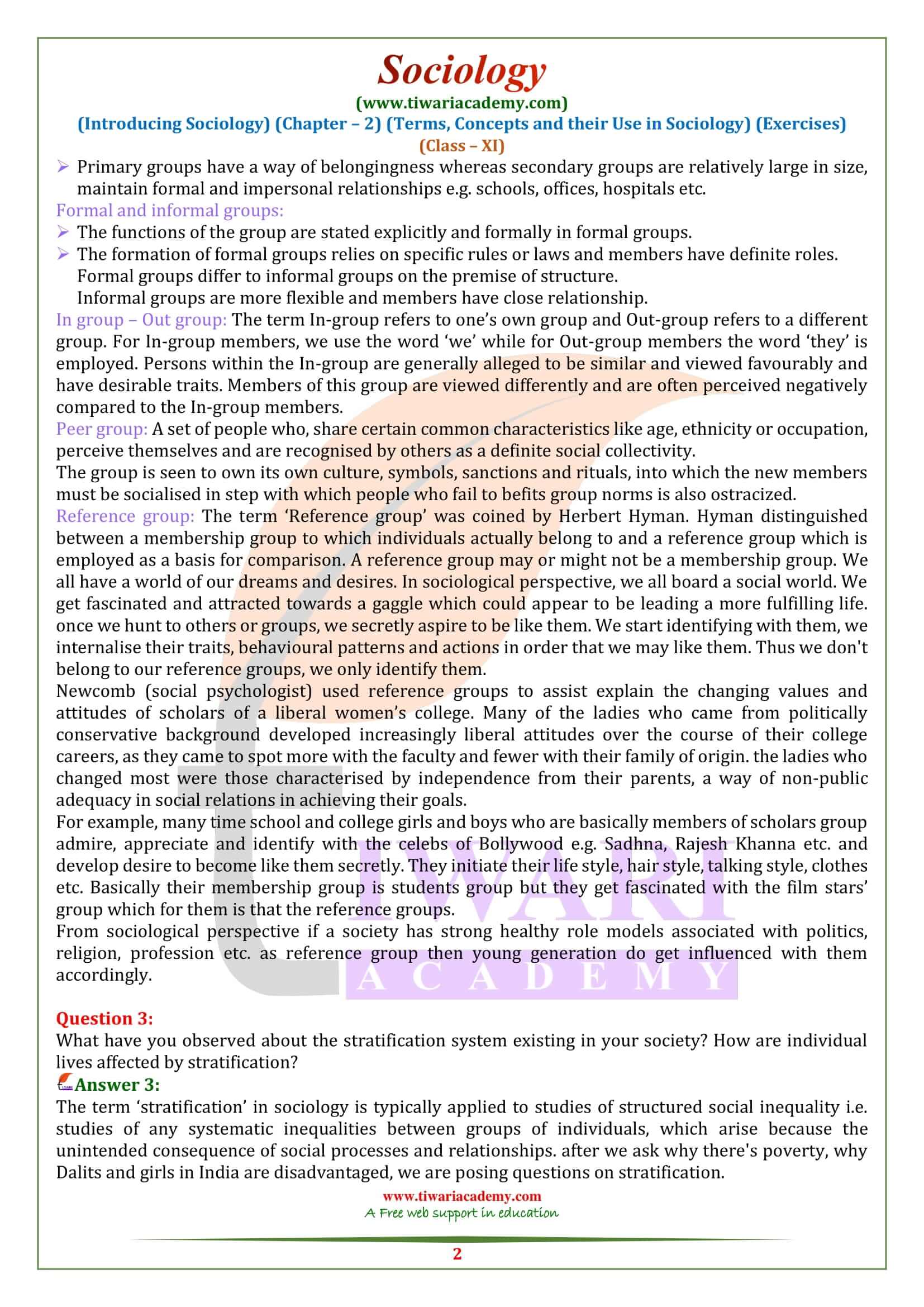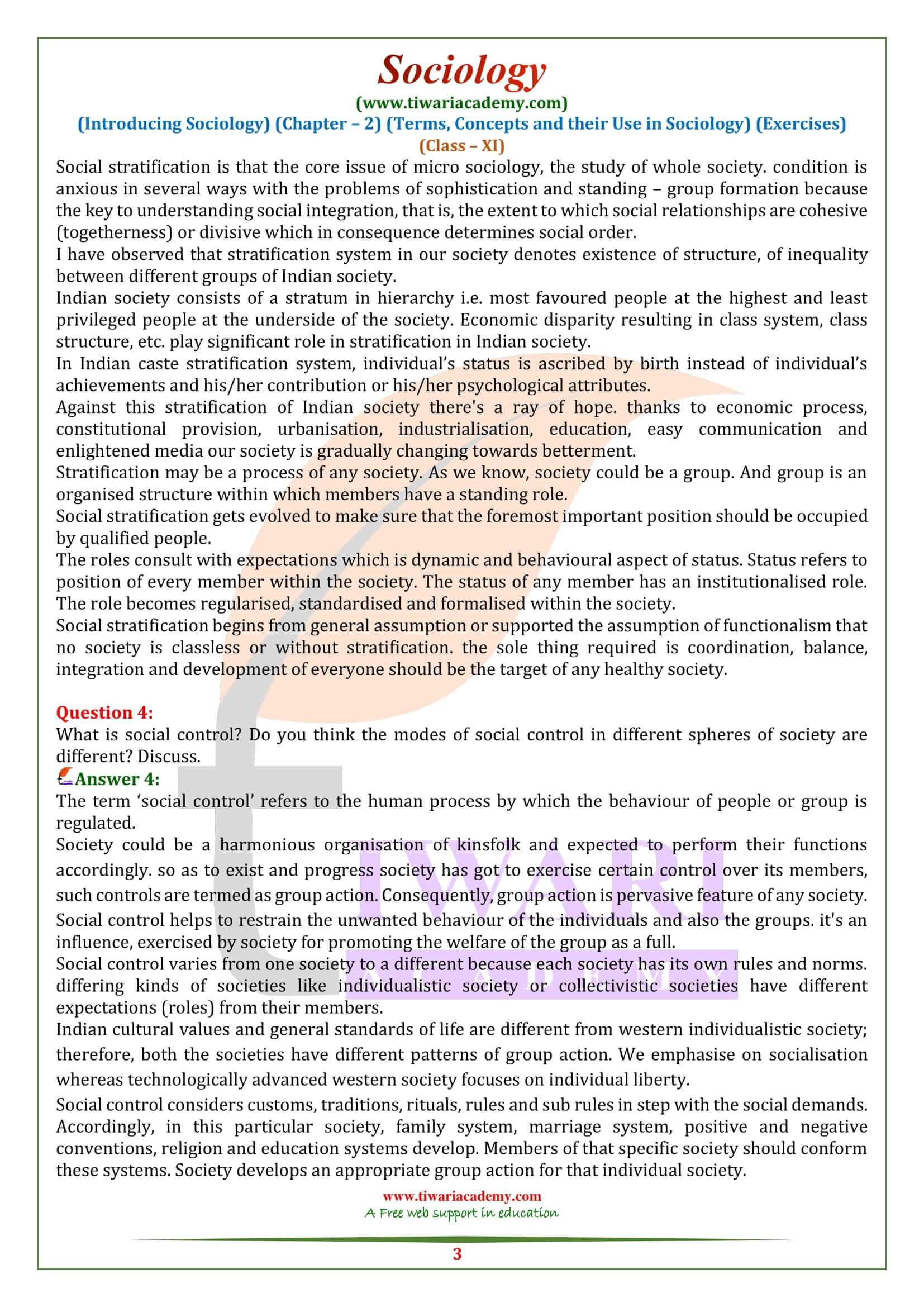NCERT Solutions for Class 11 Sociology Chapter 2 Terms, Concepts and their use in Sociology updated for CBSE session 2025-26. 11th Sociology chapter 2 of Introducing Sociology extra important questions with multiple choice questions are also helpful for the students during the exams.
Class 11 Sociology Chapter 2 Terms, Concepts and their use in Sociology Question Answers
Why do we need to use special terms and concepts in sociology?
As against commonsensical knowledge, sociology like every other science has its own body of concepts and methods of information collection.
As a scientific discipline, sociology does must have certain approved meanings of social realities and processes in studying. Each subject is required to possess a regular vocabulary, terminology, language and ideas through which professionals can converse and maintain the various identity of its subject. It becomes all the more important to debate sociological terms so on distinguish what they mean from commonsensical usage which can have varied meanings and connotations.
What have you observed about the stratification system existing in your society? How are individual lives affected by stratification?
The term ‘stratification’ in sociology is typically applied to studies of structured social inequality i.e. studies of any systematic inequalities between groups of individuals, which arise because the unintended consequence of social processes and relationships. after we ask why there’s poverty, why Dalits and girls in India are disadvantaged, we are posing questions on stratification.
Social stratification is that the core issue of micro sociology, the study of whole society. condition is anxious in several ways with the problems of sophistication and standing – group formation because the key to understanding social integration, that is, the extent to which social relationships are cohesive (togetherness) or divisive which in consequence determines social order.
Indian society consists of a stratum in hierarchy i.e. most favoured people at the highest and least privileged people at the underside of the society. Economic disparity resulting in class system, class structure, etc. play significant role in stratification in Indian society.
In Indian caste stratification system, individual’s status is ascribed by birth instead of individual’s achievements and his/her contribution or his/her psychological attributes.
Against this stratification of Indian society there’s a ray of hope. thanks to economic process, constitutional provision, urbanisation, industrialisation, education, easy communication and enlightened media our society is gradually changing towards betterment.
Stratification may be a process of any society. As we know, society could be a group. And group is an organised structure within which members have a standing role.
Social stratification gets evolved to make sure that the foremost important position should be occupied by qualified people.
The roles consult with expectations which is dynamic and behavioural aspect of status. Status refers to position of every member within the society. The status of any member has an institutionalised role. The role becomes regularised, standardised and formalised within the society.
Social stratification begins from general assumption or supported the assumption of functionalism that no society is classless or without stratification. the sole thing required is coordination, balance, integration and development of everyone should be the target of any healthy society.





